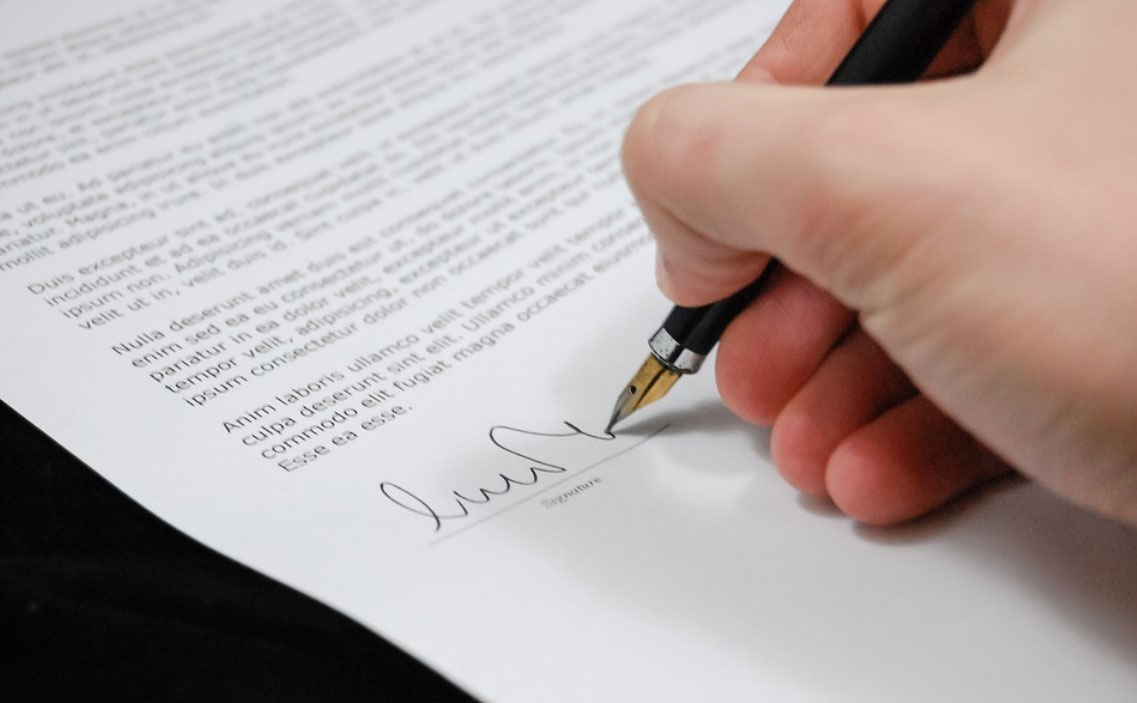A sworn translation is a document that is accompanied by the translator’s official stamp and signature. It certifies that the translation is accurate and true, enhancing its legal value with institutions and authorities.
Sworn translations are often needed in the administrative and academic spheres. PoliLingua is a leading international translation company that offers sworn translation services for all types of documents.
Documents Needed for Certification
A sworn translation has more legal weight than a regular translation and can be recognized by government agencies, courts, and other official institutions. As a result, it is typically required when filing international business contracts or submitting documents for immigration proceedings. To guarantee that your translations meet these standards, following the specific requirements of each country or institution in which you plan to use them is important.
Sworn translators are trained experts with years of experience in the field. They have extensive knowledge of the language, cultural context, and linguistic rules that affect the quality of the translations they produce. In addition, they are subject to strict ethical standards that require them to act with integrity and adherence to the law. As a result, they are often chosen by companies and individuals looking for quality translations.
The sworn translator’s role is to certify that the translated document matches the original document in its entirety. Therefore, it is imperative that sworn translators be provided with the original hard copy of each document for reference during the translation process. This allows them to work from the same source material and avoid any errors that may occur when using an electronic version of a document or photocopy.
In the legal sphere, sworn translations are used to translate court rulings, legal opinions, and affidavits. Accurate sworn translations allow legal proceedings to proceed smoothly and without confusion between the different parties involved.
Sworn translations are also required for administrative purposes, such as translating certificates, licenses, and permits. They can also be used to translate academic documents, such as transcripts and diplomas. Accurate sworn translations ensure that these documents are correctly understood and recognized by government agencies, regulatory bodies, and academic institutions.
As you can imagine, a sworn translation is an intricate and time-consuming process. This is why it is important to contact a translation agency that offers sworn translation services and can guarantee that their translators are certified. A reputable translation agency will be able to provide you with an accurate quote and deliver your sworn translation within the agreed timeframe.
Documents Needed for Sworn Translation
A sworn translation is a type of official translation that bears legal weight and can be accepted by the authorities, government agencies, businesses, and other institutions. It is typically required for immigration processes, legal proceedings, and international communication.
Generally speaking, sworn translations are considered to be the most authoritative and reliable. This is because sworn translators have undergone rigorous training and tests to be able to provide high-quality, accurate, and trustworthy translation services. They are also expected to follow strict ethical guidelines. In addition, they must be familiar with the rules and regulations governing translations in the specific country where they operate.
Legal documents are the most common items that require sworn translations. These include court rulings, legal opinions, affidavits, and other official documents. Accurate and reliable sworn translations help individuals and businesses navigate foreign legal systems and fulfill their legal obligations across language barriers.
The process to become a sworn translator varies from country to country, but in general, translators must have a bachelor’s degree or higher in linguistics or a relevant field and pass an extensive written and oral exam for their language pairs. Additionally, they must undergo a thorough background check before being given a public seal or stamp to use in their translations.
Translators specializing in legal translations must deeply understand the intricacies of foreign legal systems and cultural differences. They must have excellent attention to detail and be able to accurately convey the meaning of the original document in its context. Sworn translators must also prioritize confidentiality and ensure that all information they translate is kept confidential.
Although it is not always necessary to get sworn translations for all legal documents, they are highly recommended for important ones. This includes birth certificates, applications, technical titles, financial statements, and litigation materials. A sworn translation is an ideal option for people who are applying for a visa, seeking immigration assistance, or working internationally.
Sworn translations can be expensive, but they are worth the investment if you need them for important legal documents or business transactions. Sworn translators are experienced in their fields and understand the importance of accuracy and cultural nuances, making them the best choice for translating important legal documents. They can save you time and money by doing the job right the first time.
Documents Needed for Notarization
A sworn translation carries a high degree of legal weight and is usually recognized and accepted by courts, government agencies, and other official institutions. Sworn translations are often accompanied by the translator’s signature and official stamp or seal, which confirm the document’s accuracy and legitimacy. Sworn translations may also be referred to as certified, public, or official translations.
Sworn translations are used to translate contracts, court rulings, legal opinions, affidavits, and other legal documents. Accurate sworn translations ensure that all parties involved in legal proceedings can understand and comply with legal requirements, thus ensuring fairness and clarity in the legal process. Certified translators typically perform sworn translations with extensive legal experience and an in-depth understanding of legal terminology, concepts, and procedures.
In order to become a certified translator, you must master both the source and target language. To achieve this, most sworn translators have a master’s degree in foreign languages or a diploma from a specialized school. They must also have extensive knowledge of the legal sphere and the requirements of the countries they work in.
The sworn translator must be approved by the government agency that regulates them to perform sworn translations. There are different ways to do this, and it varies by country. For example, in Spain, professional translators must attain accreditation with the Ministry of Foreign Affairs (El Ministerio de Asuntos Exteriores y Cooperacion) to become sworn translators (traductor jurado). This involves a thorough examination of their knowledge and experience. In addition, sworn translators must sign their work under oath before a notary public in order to become certified.
Sworn translations are typically required by law enforcement and immigration officials when dealing with sensitive or confidential documents. For this reason, sworn translations must be delivered on time and without any errors or inaccuracies. Therefore, the process of preparing and delivering a sworn translation takes longer than a standard translation, and it is important to keep this in mind when submitting a request for a sworn translation.
Documents Needed for Apostille
Sworn translations often require an apostille, a certificate of authenticity that validates the translator’s signature. This can help make the translation recognized as official in countries that have signed the Hague Convention of 1961. The process for obtaining an apostille can vary slightly by country, but in general, it involves getting the document notarized and then going to the relevant government office to have it legalized. The apostille can be attached directly to the translation or affixed to a separate paper that certifies the translator’s signature.
An apostille can speed up the process of getting a translation recognized in another country, as it avoids the need to get the translation notarized again. This can be beneficial for companies that require sworn translations on a regular basis or in the case of sensitive documents that need to be expedited.
The sworn translation process can be time-consuming and expensive. Not only is the translator required to master multiple languages, but they must also pass highly challenging oral and written exams for specific language pairs. They must then undergo background checks and receive a registration number from the state registry of commerce before being considered a public sworn translator. This designation can take many years to obtain, which can increase the cost and lead times for translation projects that require sworn translation.
While a sworn translator is not necessarily the best translator in the world, they are highly experienced professionals that their government has given official recognition to provide official translations. They have taken an oath to be true and accurate in their translations, which is why these translations are so valuable in the legal sphere.
If you are in need of sworn translation services, contact PoliLingua, an international translation company with over 20 offices worldwide. Their team of expert linguists can provide professional, accurate, and reliable sworn translations for any document. For more information, click the link to our request form.







